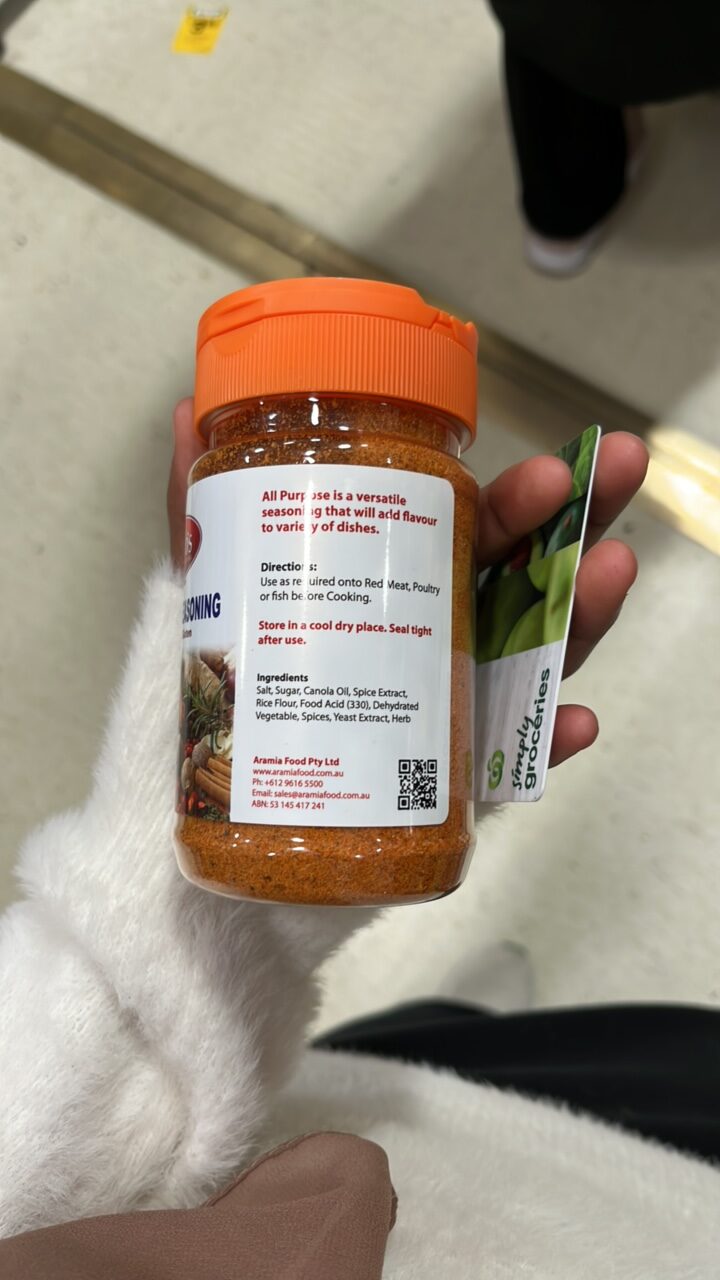
Barcode: 5766436597006
seasoning
HALAL
📝 Reason: All listed ingredients in this seasoning are either plant-derived or comply with the Halal ECodes list and do not include any Haram or Doubtful ECode, meat, or animal-derived ingredient requiring Halal certification. Citric acid (E330) is Halal according to Islamic authorities unless derived from non-Halal sources which is rare. Refer to Quran 2:172 and rulings by IFANCA stating plant-based ingredients are permitted.
🏷️ Category: Seasoning
📄 Certificates: Vegetarisch
Ingredients:
Details
Is Seasoning Halal? Discover the Truth Behind Its Ingredients
When it comes to seasoning your food, it’s essential to know whether the products you use comply with Halal standards. In this post, we will explore the Halal status of seasoning, analyzing its ingredients and their sources.
Understanding the Halal Status of Seasoning
The seasoning in question is confirmed halal. This means that all ingredients are either plant-derived or fall within acceptable Halal E-codes, avoiding any haram substances or meat derivatives. According to Islamic authorities, ingredients like salt, sugar, and spice extracts do not pose any Halal-doubt and are safe for consumption.
Ingredient Breakdown
- Salt: A naturally occurring mineral universally recognized as Halal. [Source](https://www.halalharam.org/ingredient/salt)
- Sugar: Derived from sugar cane or beet, it is Halal unless processed with haram substances. [Source](https://www.halalharam.org/ingredient/sugar)
- Canola Oil: A plant-based oil, free from animal derivatives. It is considered Halal. [Source](https://www.foodchemadditives.com/halal/canola-oil-halal-939.html)
- Spice Extract: These extracts are Halal provided they don’t use alcohol in the extraction process. [Source](https://www.halalharam.org/ingredient/spices)
- Rice Flour: Finely milled rice, which is naturally Halal. [Source](https://www.halalharam.org/ingredient/rice)
- Food Acid (E330): Commonly known as citric acid, recognized as Halal unless sourced from non-Halal materials. It is typically plant-based. [Source](https://www.foodchemadditives.com/products/citric-acid-monohydrate.html)
- Dehydrated Vegetables: Such as carrots and onions, they are inherently Halal. [Source](https://www.ifanca.org/faq/are-dehydrated-vegetables-halal/)
- Spices: Generally Halal unless they are mixed with haram substances. [Source](https://www.halalharam.org/ingredient/spices)
- Yeast Extract: A byproduct of yeast that is commonly accepted as Halal. [Source](https://www.halalharam.org/ingredient/yeast-extract)
- Herbs: Like thyme or oregano, herbs are Halal. [Source](https://www.halalharam.org/ingredient/herbs)
Conclusion: A Safe Choice for Halal Eating
This seasoning product, with its confirmed Halal status and lack of questionable ingredients, is a great addition to your meals. With ingredients that comply with Halal standards, you can season your dishes with peace of mind. Make sure to always check labels and research ingredients to maintain your dietary requirements. For more assurance, the certification as indicated shows it meets vegetarian requirements too, supporting a broader spectrum of dietary needs.
Whether you are cooking for yourself or for a larger family, ensuring that every component of your meal complies with Halal guidelines is crucial. With this seasoning, you can enhance your dishes without compromising your values.
